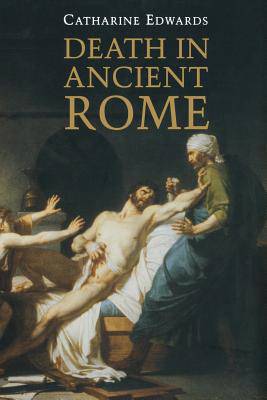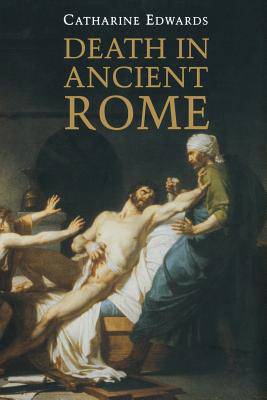
Bedankt voor het vertrouwen het afgelopen jaar! Om jou te bedanken bieden we GRATIS verzending (in België) aan op alles gedurende de hele maand januari.
- Afhalen na 1 uur in een winkel met voorraad
- In januari gratis thuislevering in België
- Ruim aanbod met 7 miljoen producten
Bedankt voor het vertrouwen het afgelopen jaar! Om jou te bedanken bieden we GRATIS verzending (in België) aan op alles gedurende de hele maand januari.
- Afhalen na 1 uur in een winkel met voorraad
- In januari gratis thuislevering in België
- Ruim aanbod met 7 miljoen producten
Zoeken
Omschrijving
For the Romans, the manner of a person's death was the most telling indication of their true character. Death revealed the true patriot, the genuine philosopher, even, perhaps, the great artist--and certainly the faithful Christian. Catharine Edwards draws on the many and richly varied accounts of death in the writings of Roman historians, poets, and philosophers, including Cicero, Lucretius, Virgil, Seneca, Petronius, Tacitus, Tertullian, and Augustine, to investigate the complex significance of dying in the Roman world.
Death in the Roman world was largely understood and often literally viewed as a spectacle. Those deaths that figured in recorded history were almost invariably violent--murders, executions, suicides--and yet the most admired figures met their ends with exemplary calm, their last words set down for posterity. From noble deaths in civil war, mortal combat between gladiators, political execution and suicide, to the deathly dinner of Domitian, the harrowing deaths of women such as the mythical Lucretia and Nero's mother Agrippina, as well as instances of Christian martyrdom, Edwards engagingly explores the culture of death in Roman literature and history.
Death in the Roman world was largely understood and often literally viewed as a spectacle. Those deaths that figured in recorded history were almost invariably violent--murders, executions, suicides--and yet the most admired figures met their ends with exemplary calm, their last words set down for posterity. From noble deaths in civil war, mortal combat between gladiators, political execution and suicide, to the deathly dinner of Domitian, the harrowing deaths of women such as the mythical Lucretia and Nero's mother Agrippina, as well as instances of Christian martyrdom, Edwards engagingly explores the culture of death in Roman literature and history.
Specificaties
Betrokkenen
- Auteur(s):
- Uitgeverij:
Inhoud
- Aantal bladzijden:
- 304
- Taal:
- Engels
Eigenschappen
- Productcode (EAN):
- 9780300217278
- Verschijningsdatum:
- 26/05/2015
- Uitvoering:
- Paperback
- Formaat:
- Trade paperback (VS)
- Afmetingen:
- 156 mm x 234 mm
- Gewicht:
- 462 g

Alleen bij Standaard Boekhandel
+ 128 punten op je klantenkaart van Standaard Boekhandel
Beoordelingen
We publiceren alleen reviews die voldoen aan de voorwaarden voor reviews. Bekijk onze voorwaarden voor reviews.









